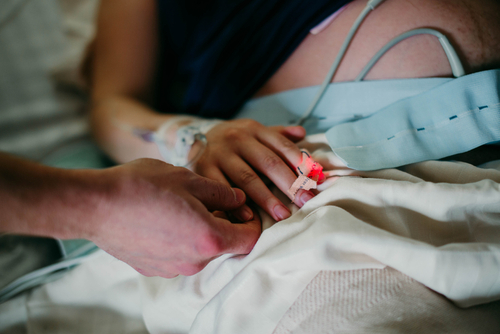As Americans in rural and medically underserved areas bear the brunt of hospital maternity units being closed down at an alarming rate, a new bill led by 18 U.S. Senate Democrats would amend federal law to enhance financial support for rural and safety net hospitals providing maternity, labor, and delivery services to vulnerable populations.

The Keeping Obstetrics Local Act, S. 5236, sponsored on Sept. 25 by U.S. Senate Finance Committee Chairman Ron Wyden (D-OR), aims to address the rising number of rural hospitals and hospitals in underserved areas that are closing their labor and delivery units.
“Too many rural communities have become maternity deserts, leaving families without access to care. It’s time we reverse this trend and offer some stability to rural hospitals so they can keep their labor and delivery ward doors open,” Wyden said. “This legislation will give rural hospitals the means to continue serving their communities, and ensures that large hospital chains can’t exploit the funds for profit.”
Between 2012 and 2022, approximately one-quarter of all rural hospitals stopped providing obstetrics services, impacting 267 communities. The trend is being caused by several overlapping challenges, including the high fixed operating costs of these units, low volumes of births, difficulties in attracting and retaining OB-trained clinical staff, and inadequate reimbursement for labor and delivery services, according to a bill summary provided by the lawmakers.
“No matter where they live, expectant moms deserve access to high-quality care to protect their health and the health of their babies,” said U.S. Sen. Maggie Wood Hassan (D-NH), the lead original cosponsor of S. 5236.
“As more maternity wards in rural areas of New Hampshire and in states across the country close, this important legislation will help give rural hospitals the resources that they need to support labor and delivery units,” Hassan said, “and provide the high-quality care that women deserve, while also making it easier for more women to get postpartum care after they give birth.”
Specifically, the bill would increase Medicaid payment rates for labor and delivery services for eligible rural and high-need urban hospitals, provide “standby” payments to cover the costs of staffing and maintaining an obstetrics unit at low-volume hospitals, create low-volume payment adjustments for labor and delivery services at hospitals with low birth volumes and require all states to provide postpartum coverage for women in Medicaid for 12 months, among other steps, the summary says.
Other cosponsors of the bill are U.S. Sens. Debbie Stabenow (D-MI), Maria Cantwell (D-WA), Tom Carper (D-DE), Ben Cardin (D-MD), Sherrod Brown (D-OH), Michael Bennet (D-CO), Bob Casey, Jr. (D-PA), Mark Warner (D-VA), Sheldon Whitehouse (D-RI), Catherine Cortez Masto (D-NV), Elizabeth Warren (D-MA), George Helmy (D-NJ), Tammy Duckworth (D-IL), Corey Booker (D-NJ), Patty Murray (D-WA), and Jeff Merkley (D-OR).
The proposed bill also would ensure that hospitals are required to use these additional resources to invest in the maternal healthcare needs of the local communities they serve.
S. 5236 has been endorsed by the American College of Nurse-Midwives, America’s Essential Hospitals, the Catholic Health Association, Community Catalyst, Families USA, the Hospital Association of Oregon, March of Dimes, the National Partnership for Women & Families, the National Rural Health Association, the Oregon Perinatal Collaborative, and the American College of Obstetricians and Gynecologists.